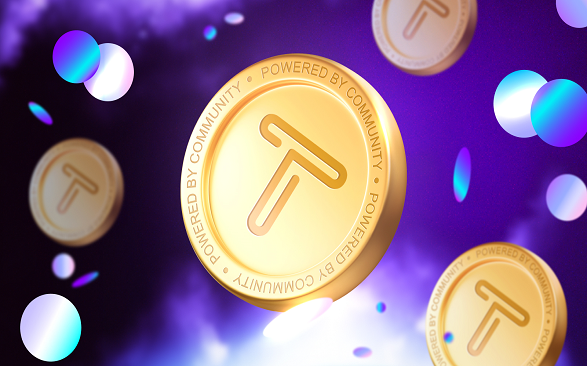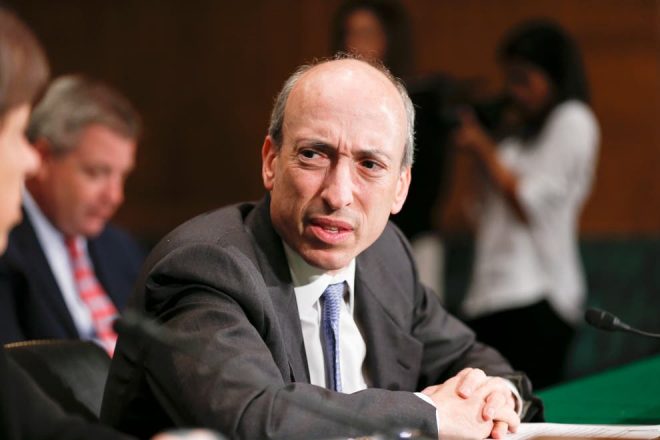Following Notcoin’s successful launch on the TON network which made a significant impact on the crypto market, achieving the highest trading volume of over $1 billion and becoming the largest gaming token launch of 2024, Tapswap is on. Initially set out to launch its token on 30 May 2024 but eventually postponed to 1 July 2024 due to the presence of bots that earned an unrealistic amount of shares, Tapswap is one project that has got millions of people tapping their phones globally. Tapswap users hoped to tap their Binance user identity (UID), but Binance wouldn’t share. Why? Find out.
The Tapping community
Tapswap is a crypto-mining project where users engage with a Telegram bot to earn Tap tokens. The Taps token is the native token of the TapSwap ecosystem, used for transactions and governance within the platform. The token allocation strategy includes airdrops to active community members, treasury for platform development, team, advisors, and liquidity support.
Despite initially announcing that it would launch on the Solana Blockchain, Tapswap switched to the TON blockchain and unlike other airdrops that are usually free, it requires users to hold one Ton token to double the points they have earned.
Tapswap, sadly, has been met with some criticism, as it lacks a community space unlike other crypto projects. Also, the project launched a task that required users to subscribe to two Nigerian news channels, and this raised some eyebrows.
The user experience, more unfortunately, has also been below the acceptable standard with users complaining about technical issues.
In a bid to get validity in the Crypto space, TapSwap had announced a special mission in collaboration with Binance, offering three million TapSwap shares and a $600 Binance voucher to players who complete the mission. The mission is time-sensitive and aims to encourage players to participate and engage with the TapSwap ecosystem. The collaboration with Binance is to provide an opportunity for users to trade their shares on the Binance exchange.
The crypto exchange market has grown exponentially in recent years, with millions of users worldwide relying on online platforms to buy, sell, and store cryptocurrencies. As the market continues to evolve, crypto exchanges have become a critical infrastructure for the digital asset economy. However, the increasing demand for crypto services has also raised concerns about user trust and data security.
User trust and data security are paramount in the crypto exchange market because users entrust exchanges with their sensitive personal information, financial data, and valuable digital assets. Exchanges handle vast amounts of sensitive data, making them attractive targets for cybercriminals, hackers, and other malicious actors.
This article sets out to address the concerns about user trust and data security in the crypto space, taking a close look at the Tapswap-Binance collaboration.
Also Read: Bitcoin’s unsteady feet stir concerns amongst investors and analysts.
Binance’s Established Reputation
Binance is the world’s largest cryptocurrency exchange by trading volume. Binance Coin (BNB) has a storied history, marked by significant milestones and trends that have influenced its valuation and market penetration. From its launch in July 2017 to the present day, BNB has demonstrated remarkable growth, weathering market fluctuations and regulatory challenges. Key factors contributing to its success include strategic partnerships, innovative features, and a strong team. Historical performance has outpaced other major cryptocurrencies, with notable events like the launch of Binance Smart Chain and token burn events impacting price movements.
Binance prioritizes security, implementing robust measures to protect users’ assets. Two-factor authentication (2FA) adds an extra layer of account security, while cold storage ensures that the majority of assets are stored offline, safe from potential hacking attempts. Advanced encryption technologies and regular security audits and updates further bolster the platform’s defenses. Binance has, thus, established itself as a trusted leader in the cryptocurrency exchange market.
Read Also: Binance announces USD withdrawal suspension date; users panic.
TapSwap’s Request for Binance User ID (UID)
Following a post by Tapswap on X about its collaboration with Binance and a request for users to provide their KYC on the platform, there were uproars as to why UID should be shared with Tapswap
The reasons for Tapswap’s alleged request of Binance User ID (UID) may not be far fetched as such would enable a seamless connection between the two platforms, allowing for a more integrated and efficient experience.
Additionally, it could enable TapSwap to offer personalized features and improvements tailored to the user’s needs.
Binance’s Objection to UID Request
Binance, via its customer support handle on X had advised concerned users against sharing their UID with Tapswap platform, stating that it is imperative they kept it confidential.
Concerns of the leading cryptocurrency exchange, Binance are not unreasonable as the platform prioritizes user data privacy and security. They recognize the sensitivity of users’ personal and financial information, including addresses, transactions, and account details, and take measures to ensure it remains confidential and secure.
They also prioritize maintaining user trust by safeguarding user data, fostering confidence in their platform. Additionally, Binance complies with global privacy and security standards, such as GDPR and KYC/AML requirements, to ensure their users’ data is protected.
Read Also: BTC faces turbulence as Matrixport predicts SEC rejection of Bitcoin ETFs
Comparison of TapSwap and Binance’s Approach to User Trust and Data Security
TapSwap and Binance have differing approaches to user trust and data security. While both prioritize security, their methods and features differ. TapSwap implements robust encryption, 2-factor authentication, and regular security audits to ensure user data protection. On the other hand, Binance utilizes a multi-tiered architecture, SSL encryption, and robust KYC/AML policies to safeguard user information.
When it comes to strengths and weaknesses, TapSwap excels in its user-friendly interface and robust encryption, but lacks the comprehensive security features offered by Binance. Meanwhile, Binance’s robust architecture and strong KYC/AML policies are notable, but its complex interface and past security breaches are areas of concern.
Read Also: BNB hits new all-time high of $710: Prospects for investors and traders
User Trust and Data Security at Stake
User trust and data security are paramount in the crypto space, where sensitive financial information and personal data are involved. When a controversy like TapSwap’s UID request arises, it can erode user trust and compromise data security, leading to a loss of confidence in the industry as a whole. Users expect their personal information and assets to be protected, and any perceived neglect or exploitation can lead to a mass exodus, damaging the reputation of exchanges and platforms.
The crypto industry’s credibility and growth rely heavily on user trust. When trust is breached, it can hinder adoption and deter potential users from entering the market. Moreover, data security breaches can lead to financial losses, legal liabilities, and regulatory scrutiny. The industry’s reputation suffers, making it harder for legitimate players to operate and innovate. This controversy by Binance and Tapswap, points to the need for robust security measures, transparency, and user-centric approaches to maintain trust and ensure the long-term viability of the crypto space. Users’ trust and data security are non-negotiable, and the industry must rise to meet these expectations.
Collaboration and user trust are important in the crypto space, as they foster a sense of community and credibility. When exchanges, blockchain projects, and other industry players work together, they can share knowledge, resources, and best practices, driving innovation and growth.
Read Also: Notcoin: SWOT Analysis for Investors, Holders, and Users
Credit: Solomon Victor is a Technical Analyst who is also knowledgeable about various aspects of blockchain and cryptocurrency.
Discover more from Crypto Asset Buyer
Subscribe to get the latest posts sent to your email.





